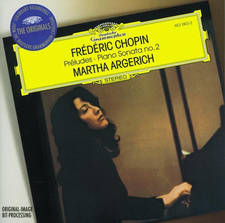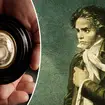Ultra-realistic image of Beethoven created by visual artist using composer’s own life mask
2 May 2024, 11:57

On the eve of a landmark anniversary, digital sculpting and rare surviving artefacts are used to bring us the most accurate portrait to date of Ludwig van Beethoven.
Listen to this article
Hadi Karimi is an Iranian visual artist, who produces 3D colourised portraits of the great composers based on their life and death masks, busts, and other materials that we rely on to understand how our favourite musical maestros might have looked in real life.
“We grew up with all these beautiful symphonies and memorable melodies, but do we know the minds behind them?” Karimi told Classic FM.
“Sometimes we remember them by just a name and if we’re lucky there’s a painting or a black and white photo from centuries ago that could barely show us what they actually looked like.”
And now, Karimi has lent his talents to Beethoven.
Read more: Chopin’s face is brought to life in artist’s incredible 3D portraits

Beethoven reincarnated by visual artist Hadi Karimi using life mask
Karimi has attempted a Beethoven reincarnation before, based on the great composer’s life mask and a bust. But this time, he had been provided with a scan of Beethoven’s life mask by Digitus Art, allowing him to create a “more accurate facial reconstruction”.
His portraits are created using digital sculpting technology, including tools like ZBrush and Xgen core, which help achieve a more lifelike feel for the hair and skin texture.
The new likeness comes just in time for the 200th anniversary of the premiere of not only one of Beethoven’s greatest musical accomplishments, but one of the all-time achievements in classical music – the monumental Symphony No.9, ‘Choral’.

It humanises him in an extraordinary way. “Beethoven is often portrayed as this heroic figure that resembles more of a Greek god than a human who dedicated his life to music,” Karimi said, explaining the motivation for his project.
“I’ve worked on a couple of portraits of Beethoven but this is the first time I’ve had access to a scan of his life mask,” the artist added, speaking to Classic FM. “The mask was originally made in 1812 by Franz Klein.
“Of course, I had to take into consideration the weight and the pressure on the facial muscles while the cast was being made, also I had to find some clues about the skin tone and the hair colour from other resources like the paintings and the descriptions by the people close to him.”
A great gift, as we celebrate 200 years of Beethoven’s greatest work of all.


























